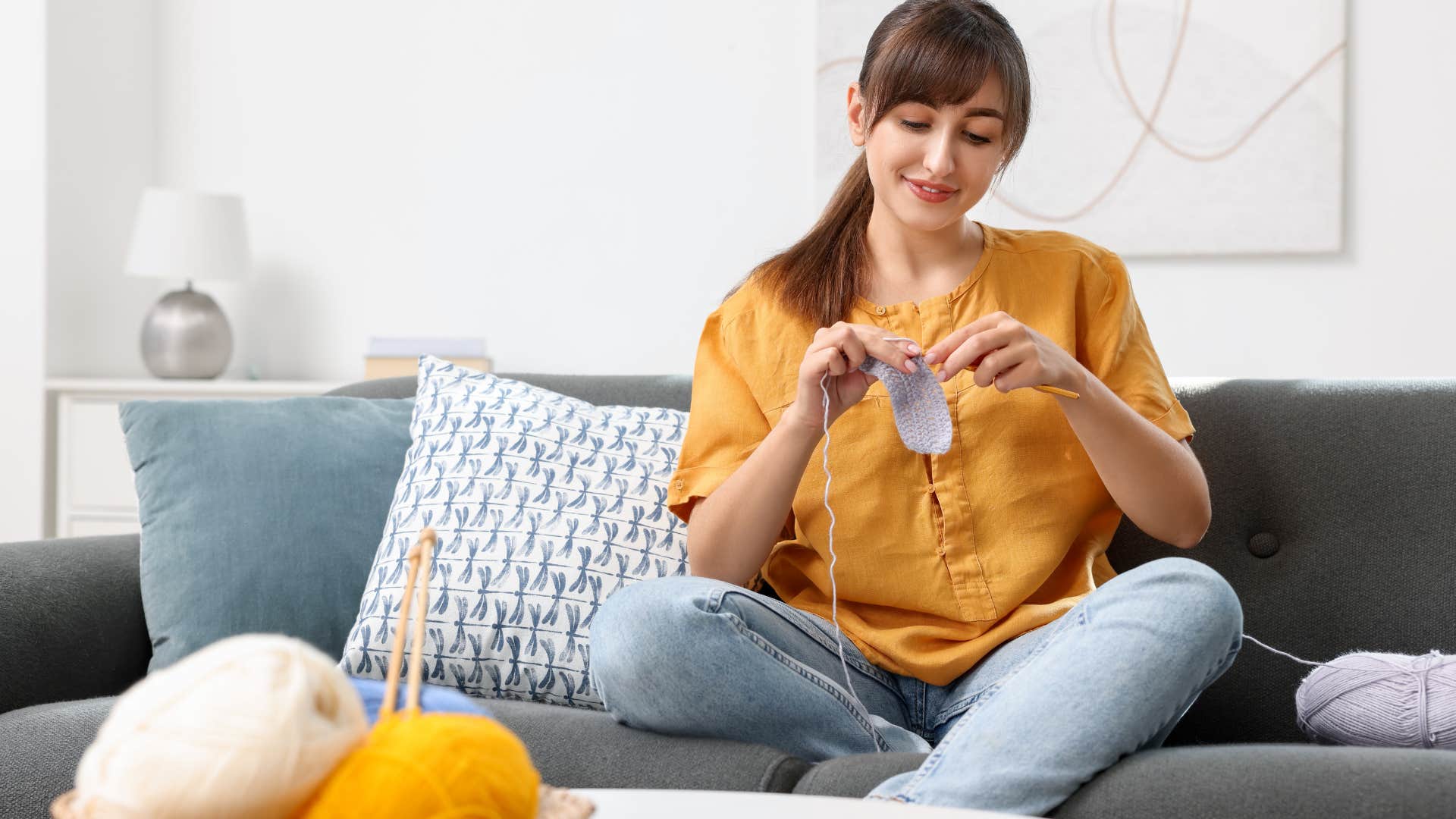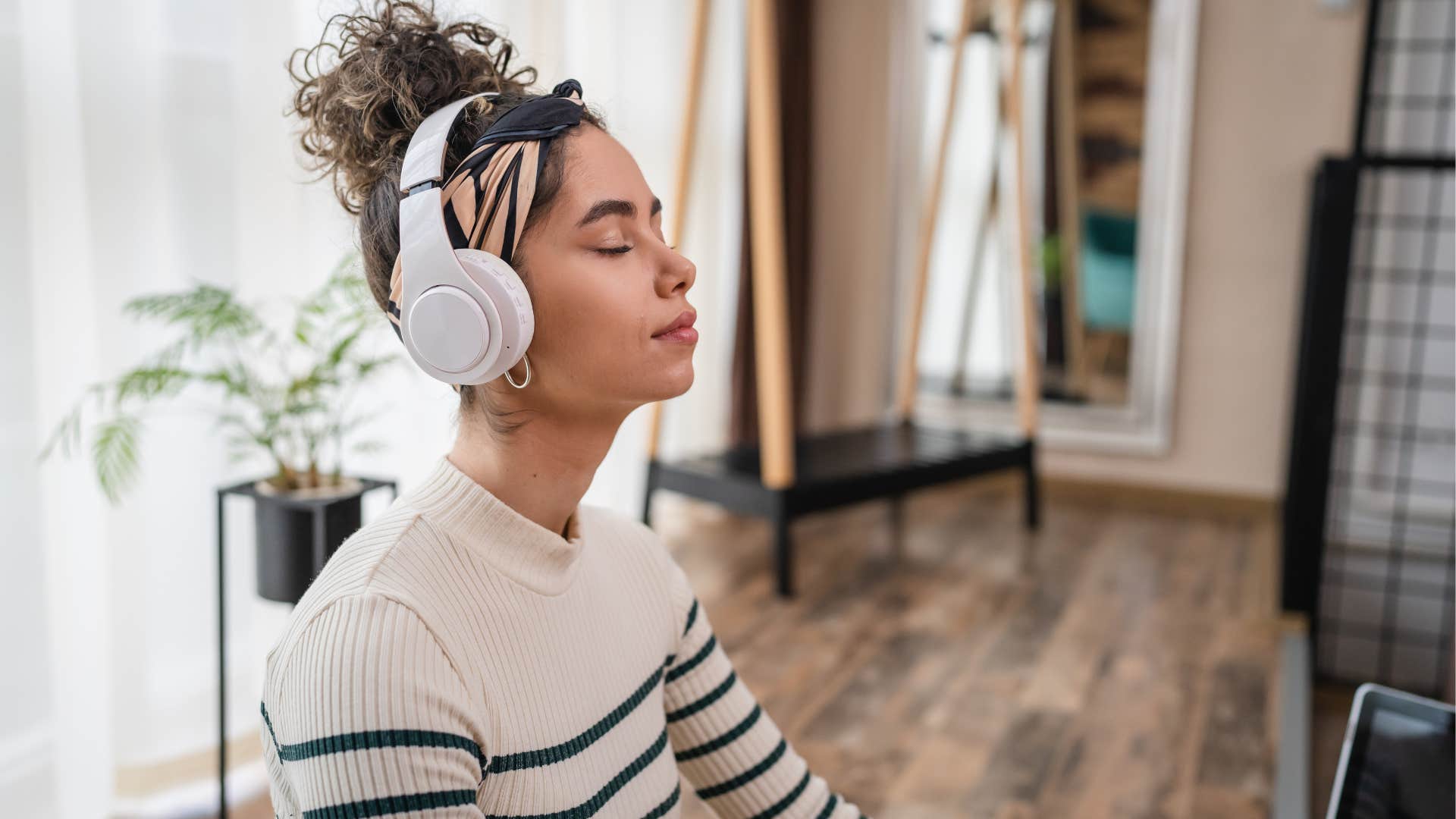11 Things Gen Z Thinks Are Outdated But Could Actually Make Their Lives So Much Better
Are these things outdated like Gen Z thinks, or just seriously underrated?
 Iryna Inshyna / Shutterstock
Iryna Inshyna / Shutterstock In a world where everything is instant, digital, and constantly being updated, it’s easy to dismiss anything that feels remotely old-school. Gen Z, raised on smartphones and streaming, often labels certain habits, tools, or ways of life as outdated relics of a slower and less optimized time. But what if some of those so-called relics are actually hidden gems that could actually make their lives better?
From handwritten notes to reading a book, there's a surprising number of outdated things that could genuinely enhance the way Gen Z works, thinks, and lives. Let’s explore a few throwbacks that deserve a serious comeback.
11 things Gen Z thinks are outdated but could actually make their lives so much better
1. Physical alarm clocks
 Maxim Artemchuk | Shutterstock
Maxim Artemchuk | Shutterstock
One thing Gen Z often writes off as outdated but could seriously improve their daily lives is the humble physical alarm clock. Sure, phones have built-in alarms, but relying on them keeps your device within arm’s reach all night, inviting late-night scrolling and disrupted sleep.
One survey found that Generation Z spends more than eight hours a day online. Swapping your phone for a real alarm clock helps create a healthier bedtime routine by cutting off screen time and reducing exposure to blue light before sleep. Plus, waking up without immediately diving into notifications or social media can make mornings feel a lot more peaceful and intentional. It’s a small switch, but one that could totally reset the tone of your day.
2. Writing in journals
 Ground Picture | Shutterstock
Ground Picture | Shutterstock
Writing in a physical journal might seem like a relic from another era, but it’s actually one of the most powerful tools Gen Z could tap into for mental clarity and emotional well-being. Unlike typing in your Notes app or venting on a private story, journaling by hand slows your thoughts down and helps you process emotions more deeply. It can also improve memory retention.
According to one study, participants who journaled for more than thirty days reported a 10.4% greater improvement in depression symptoms compared to those who journaled for fewer than thirty days. It’s also a completely offline, distraction-free space with no notifications, no algorithms — just you and your thoughts.
Whether it’s daily reflections, goal-setting, or a brain dump before bed, journaling creates a moment of mindfulness in a world that’s constantly moving. Old-school? Maybe. But seriously effective.
3. Reading paper books
 Roman Samborskyi | Shutterstock
Roman Samborskyi | Shutterstock
In the age of endless TikTok scrolls and Kindle convenience, reading a paper book might feel outdated, but it’s one of the most grounding things Gen Z could re-embrace. There’s something about holding a physical book, turning the pages, and seeing your progress that just hits different. Unlike reading on a screen, physical books don’t come with distractions or eye strain, and they help you immerse yourself into a story.
Plus, it’s a full sensory experience with the feel of the pages, the smell of the paper, even the act of bookmarking a favorite line. According to the World Economic Forum, Gen Zer's say they prefer to pick up a printed book rather than an e-book. It’s slower, yes, but that’s exactly the point. In a world that moves too fast, paper books offer a much-needed pause.
4. Calling instead of texting
 JLco Julia Amaral | Shutterstock
JLco Julia Amaral | Shutterstock
Texting might be the default, but sometimes a good old-fashioned phone call can do what a hundred texts can’t. Gen Z might see calling as awkward or too intense, but the truth is, it can actually save time, reduce misunderstandings, and build stronger connections.
Because Gen Z has them so rarely, phone conversations feel foreign. It’s not that they can’t do it, it’s just that it doesn’t feel natural. Tone, laughter, pauses and those all get lost in text which leads to confusion or dry conversations.
A quick call can clear things up, deepen a friendship, or just make someone’s day feel a little more human. Plus, hearing someone’s voice creates a sense of closeness that no emoji or LOL can replicate. It’s not outdated, it’s underrated.
5. Wearing a watch
 fizkes | Shutterstock
fizkes | Shutterstock
Wearing a watch might feel unnecessary when your phone tells time, but this outdated habit can actually level up your daily life. A watch isn’t just about knowing the time, it’s about being more present. Instead of pulling out your phone and falling into a scroll-hole. You can check the time with a quick glance and keep it moving.
According to a report by Watch Finder, 41% of Gen Z came into possession of a luxury watch in the last 12 months, and over a third feel watches are better investments than gold, fine wine, and real estate. They also said that the condition was the most important thing about owning a watch.
Plus, watches add instant style and personality to your outfit, whether it’s vintage, minimalist, or sporty. They send a quiet message that you value time and aren’t ruled by your phone. In a world obsessed with screens, a classic wristwatch is both a statement and a small act of mindfulness.
6. Cooking at home from scratch
 Just Life | Shutterstock
Just Life | Shutterstock
In an era of DoorDash and microwave meals, cooking at home from scratch might feel like a time-consuming chore but it’s actually a form of self-care Gen Z could seriously benefit from. It’s not just about the food, it’s about slowing down, creating something with your hands, and connecting with what you’re putting into your body.
One survey found that 64% of Gen Z individuals report cooking for themselves rather than for family, friends, or significant others. Cooking from scratch builds real-life skills, saves money, and gives you full control over ingredients with no mystery additives or hidden sugars.
Plus, it can be surprisingly therapeutic like chopping veggies, simmering a sauce, vibing to your playlist? Total main character energy. It's not outdated, it’s empowering.
7. Going to the library
 PeopleImages.com - Yuri A | Shutterstock
PeopleImages.com - Yuri A | Shutterstock
Public libraries might seem like a thing of the past, but they’re honestly one of the most underrated resources Gen Z could be taking advantage of. It’s not just about borrowing books that are free. According to a survey by the American Library Association, 32% of Gen Z and millennials download or read books for free from unlicensed sources.
Libraries offer peaceful, screen-free zones for studying, thinking, or just existing without pressure. Most also have free Wi-Fi, cozy reading nooks, access to movies, music, digital subscriptions, and even workshops or events. It’s basically a wellness space disguised as a public service.
In a world where everything feels like it comes with a cost or a subscription, the library is a rare place that gives without asking. Old-school? Sure. But also kind of revolutionary.
8. Writing in cursive
 Bo1982 | Shutterstock
Bo1982 | Shutterstock
Cursive writing might feel like a school day relic, but it’s actually something Gen Z could benefit from bringing back. While typing is fast and efficient, writing in cursive engages your brain in a more creative and personal way. It improves fine motor skills, boosts memory retention, and helps you connect more deeply with what you’re writing.
Plus, it’s a huge flex in the world of typed notes and digital communication, it makes your handwriting feel more unique and thoughtful. And let’s be real, who doesn’t love the smooth flow of a well-written signature? Cursive isn’t outdated, it’s an art form that could give your daily writing a little more flair.
9. Slow hobbies like knitting, woodworking, and gardening
 New Africa | Shutterstock
New Africa | Shutterstock
In a world that’s all about instant gratification and nonstop hustle, slow hobbies like knitting, woodworking, and gardening might seem like they belong in the past, but they’re exactly the kind of practices Gen Z could benefit from today. These activities force you to slow down, focus, and be fully present in the moment. Knitting can be meditative, woodworking taps into your creativity, and gardening helps you connect with nature and the seasons.
Not only do these hobbies boost mental well-being, but they also teach valuable, hands-on skills and create things that are meaningful and tangible. In a culture obsessed with speed, taking time to cultivate something by hand offers both a sense of accomplishment and peace. They’re not outdated, they’re the antidote to burnout.
10. Listening to full albums
 Miljan Zivkovic | Shutterstock
Miljan Zivkovic | Shutterstock
In the age of playlists and singles, listening to an entire album might feel like a throwback to another era. But sitting down and experiencing an album in its entirety from start to finish can totally change how you connect with music. When you listen to a full album, you're not just hearing individual songs but you're diving into an artist's complete vision, their story, and the flow they intended. It’s an immersive experience that can deepen your emotional connection to the music.
Plus, albums often have hidden gems or transitions that make the listening experience feel like a journey, not just a soundtrack for your day. It’s not outdated, it’s an experience that lets you appreciate music the way it was meant to be appreciated.
11. Writing letters or cards
 Nicoleta Ionescu | Shutterstock
Nicoleta Ionescu | Shutterstock
In an age where digital messages are the norm, taking the time to write letters or cards might seem like a long-lost art. But it’s one of the most meaningful, personal ways to connect with others that Gen Z could benefit from reviving. There’s something deeply special about getting a handwritten letter or card which is a physical, tangible expression of care and thoughtfulness. Whether it’s for birthdays, thank you letters, or just to check in on someone, writing by hand shows a level of effort and attention that a quick text can’t match.
Plus, it’s a unique way to express emotions without the pressure of emojis or instant replies. Writing letters isn’t outdated, it’s a powerful way to make someone’s day, and in turn, improve your own sense of connection and mindfulness.
Sylvia Ojeda is an author who has over a decade of experience writing novels and screenplays. She covers self-help, relationships, culture, and human interest topics.

